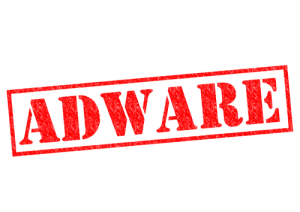Adware Advertiser Sidesteps Liability

Photo credit: “ADWARE red Rubber Stamp over a white background” // ShutterStock
The plaintiffs alleged that the pop-up ads confused consumers into believing the ads were part of their websites. The court responded that Reed Elsevier didn’t commit trademark infringement if it didn’t “use” the trademark (oh god, are the trademark use in commerce debates going to reemerge?). The court doesn’t clarify what triggered Reed Elsevier’s ads, but I assume IMS determined the websites were law firm websites and sold Reed Elsevier inventory across numerous law firm websites. If that’s true, Reed Elsevier wouldn’t have purchased the plaintiffs’ trademarks as keywords. Citing the classic Second Circuit WhenU case (but not citing the Rescuecom case, which distinguished WhenU in important ways), the court goes on to say:
This Court finds that the pop-up advertisement at issue does not constitute “use” within the meaning of the Lanham Act because it appears in a separate window and does not divert or misdirect consumers away from Plaintiffs’ websites.
The court further indicates there isn’t likely to be any consumer confusion because Reed Elsevier’s ad copy has “no bearing on whether the customer was confused about the origin of the pop-up advertisement.” I believe the court is trying to say that the only relevant consumer confusion is the consumers’ understanding of why the pop-up was displaying, so Reed Elsevier is off the hook if its ad copy is silent on that topic. OK….
The tortious interference claim fails because there’s no existing business relationship with the website visitors:
Consumers’ visits to their websites create nothing more than a mere hope that the consumers will ultimately contract with Plaintiffs for legal services.
My, how far we’ve come from the days when courts would assume 100% conversion rates from website visitors! It would have been nice to see the court cite the Overstock v. SmartBargains case here.
We don’t see many old-school adware cases any more. However, the parties apparently incurred some pretty high transactions costs to source new legal clients. That makes me wonder if there could be a business case where these complex adware-driven efforts still make sense.
Case citation: Allen v. IM Solutions, Inc., 2015 WL 881247 (E.D. Okla. March 2, 2015).
